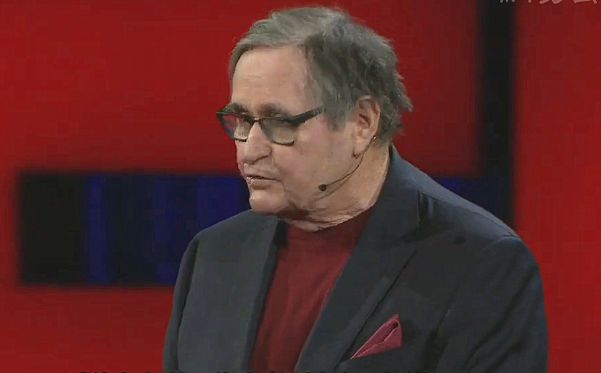Let me explain.
下面我來解釋一下。
One of the things that characterizes extroverts is they need stimulation.
外向性格的人的一大特征,就是他們需要刺激。
And that stimulation can be achieved by finding things that are exciting:
這種刺激可以是令人興奮的事:
loud noises, parties and social events here at TED -- you see the extroverts forming a magnetic core.
比如巨大的聲響、熱鬧的聚會和TED這樣的社交事件——你會發現外向者會形成一個磁性的內核。
They all gather together. And I've seen you.
他們會聚集到一起。所以我才會在這里遇見你們。
The introverts are more likely to spend time in the quiet spaces up on the second floor,
而內向的人更喜歡上到二樓,找個安靜的地方待著,
where they are able to reduce stimulation -- and may be misconstrued as being antisocial,
以減少外界刺激--這樣做可能會被誤認為不喜歡社交,
but you're not necessarily antisocial.
但其實這并不絕對。
It may be that you simply realize that you do better when you have a chance to lower that level of stimulation.
也許你只是單純地知道自己在外界刺激較低的時候狀態更好。

Sometimes it's an internal stimulant, from your body.
這也包括內在刺激,來自你的體內。
Caffeine, for example, works much better with extroverts than it does introverts.
比如說,咖啡因有時候對外向的人比內向的人更有效。
When extroverts come into the office at nine o'clock in the morning and say, "I really need a cup of coffee,"
當外向者早上9點走進辦公室說,“我需要一杯咖啡?!?/div>
they're not kidding -- they really do.
他們沒開玩笑--他們是真需要。
Introverts do not do as well, particularly if the tasks they're engaged in --
內向者就不會這么做,尤其是當他們正在干的活兒——
and they've had some coffee -- if those tasks are speeded, and if they're quantitative,
而且他們已經喝過咖啡了--如果這些活兒很急,而且有量化標準,
introverts may give the appearance of not being particularly quantitative. But it's a misconstrual.
內向者會表現得好像,這些活兒沒有特別的量化標準。但這是一種誤導。
So here are the consequences that are really quite intriguing:
因此我們能得出一些,非常有趣的結論:
we're not always what seem to be, and that takes me to my next point.
我們經常會表里不一,這就引出了我下一個觀點。











